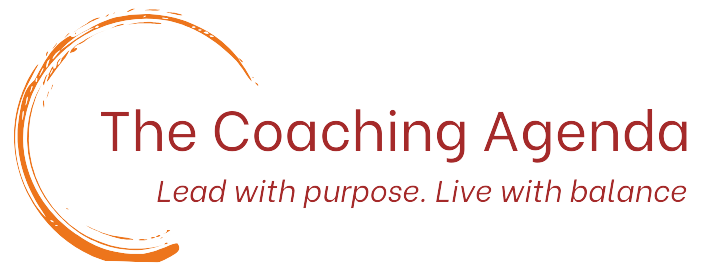The Launchpad Playbook - Crafting Entry-Level Resume
The Launchpad Playbook: Crafting Entry-Level Resumes That Open Doors
Entering the workforce requires a unique resume strategy—one that transforms academic achievements, extracurricular activities, and even unrelated work experience into a compelling narrative of potential. This playbook extracts insights from recruiters and career advisors to help new graduates and career changers create resumes that command attention despite limited professional history.
The Foundational Philosophy: Showcasing Potential Over Experience
The primary challenge for entry-level candidates is lack of direct industry experience. The solution lies in demonstrating transferable skills, quantifiable achievements from academic and extracurricular pursuits, and a clear trajectory toward professional growth. The core principle: employers hire potential, not just past performance.
Resume Structure: Hybrid Approach
Use a combination (or hybrid) resume. This structure allows you to highlight relevant skills and background in the experience or work history section as well as in an introduction. Your resume introduction should include a profile summary and a key skills section, but you may also add a career highlights or awards section. By carefully choosing the details for these intro sections, you can (a) position yourself for your target job and (b) give hiring managers a clear, quick view of what you offer.
The Opening Statement: Objective vs. Summary
The opening statement must immediately convey your career goals and highlight relevant skills. Consider these approaches:
Resume Objective
"Prospective data analyst who strives to pose and answer questions with quantitative-driven insights. Through the development of personal projects I’ve learned the importance of having an iterative, hypothesis-oriented approach to analysis and I’m excited to leverage that approach at Acme Corp as a data analyst”.
Summary of Qualifications
"Detail-oriented and analytical recent graduate with a Bachelor’s degree in accounting. Demonstrated ability to work effectively in a team environment and independently. Seeking to leverage my skills and knowledge to contribute to the success of [Company Name] as an entry-level accountant."
Objectives work when targeting a specific role. Summaries offer flexibility when exploring options.
Skills Section: Transferable Competencies
Even without direct experience, showcase skills relevant to your target job. Highlight specific capabilities required for the job as well as practical experience and application of skills. Use a skills section to highlight the various ways you can apply yourself in your chosen profession.
Key Skills and Proficiencies
Cross-functional coordination
Customer service and relations
Efficiency improvement
Independent research
Leadership support
Microsoft Office Suite (Word, Excel, Outlook, PowerPoint)
Office administration
Policy implementation
Process redesign and improvement
Reporting and documentation
Task prioritization
Teamwork and collaboration
Time management
Writing, editing, and proofreading
Experience Section: Making Anything Relevant
The key is to make anything seem relevant to the role you’re applying for. Any work experience has skills that are transferable to other jobs. Having a job, whether that’s a part-time summer job or an entirely unrelated full-time position demonstrates responsibility. Don’t be hesitant to include any employment you’ve had in the past.
1. Quantify Achievements
"Increased customer satisfaction scores by 15% through proactive problem-solving at [Retail Company]"
2. Highlight Transferable Skills
"Coordinated volunteer team of 10 members, improving event attendance by 20%”
3. Focus on Action Verbs
"Managed social media campaigns resulting in 30% increase in followers for [University Club]"
Education Section: Academic Achievements
Use the Education and Certifications sections to show you have a solid knowledge base in your field. Citing relevant awards, coursework, papers, or projects under each school degree is often a good idea. This helps hiring managers see you are capable even if your hands-on experience is limited. For the same reason, flesh out any relevant licenses or certifications with a description of the skills you learned and could apply at the entry level.
Example
"Candidate: Bachelor of Arts (BA) – English, Creative Writing, Ohio University, Athens, OH | expected May 2023
· Winner, Campus Award for Long-Form Fiction (2022)
· Runner-up, Campus Award for Excellence in Poetry (2021)
· Select Coursework:
o Children’s fiction
o Fiction workshopping
o Poetry and drama
o Prose and nonfiction
o Short story writing
Projects Section: Showcasing Initiative
Projects demonstrate a real interest in the industry you’re seeking employment in, that you take initiative (a very desirable trait for entry-level candidates), and a level of expertise in your field.
Project Ideas
· Software Development: Personal website, mobile app, open-source contributions
· Marketing: Social media campaign for local business, blog with 1,000+ followers
· Data Analysis: Statistical model predicting consumer behavior
· Finance: Investment portfolio simulation, stock pitch competition
Extracurricular Activities: Leadership & Teamwork
Extracurricular activities can demonstrate leadership, teamwork, and time management skills.
Examples
· "President of Debate Club: Managed budget, organized events, recruited new members"
· "Volunteer at Local Charity: Coordinated fundraising efforts, managed social media"
· "Captain of Sports Team: Led team practices, motivated members, resolved conflicts"
Tailoring and Keywords: Aligning with Job Descriptions
Carefully tailor your resume to each job application, using keywords from the job description throughout your resume to highlight your most relevant qualifications and skills. This makes it easier for applicant tracking systems (ATS) to recognize your resume as a good fit for the position.
Resume Length: Keeping it Concise
The recommended length for an entry-level resume is one page, especially for professionals with under 10 years of experience.
Conclusion: Launching Your Career
The entry-level resume is not a comprehensive career history—it's a strategic marketing document showcasing potential. By emphasizing transferable skills, quantifying achievements, and highlighting relevant projects, you transform a lack of direct experience into a compelling narrative of future success
